IMPACT REPORT 2023
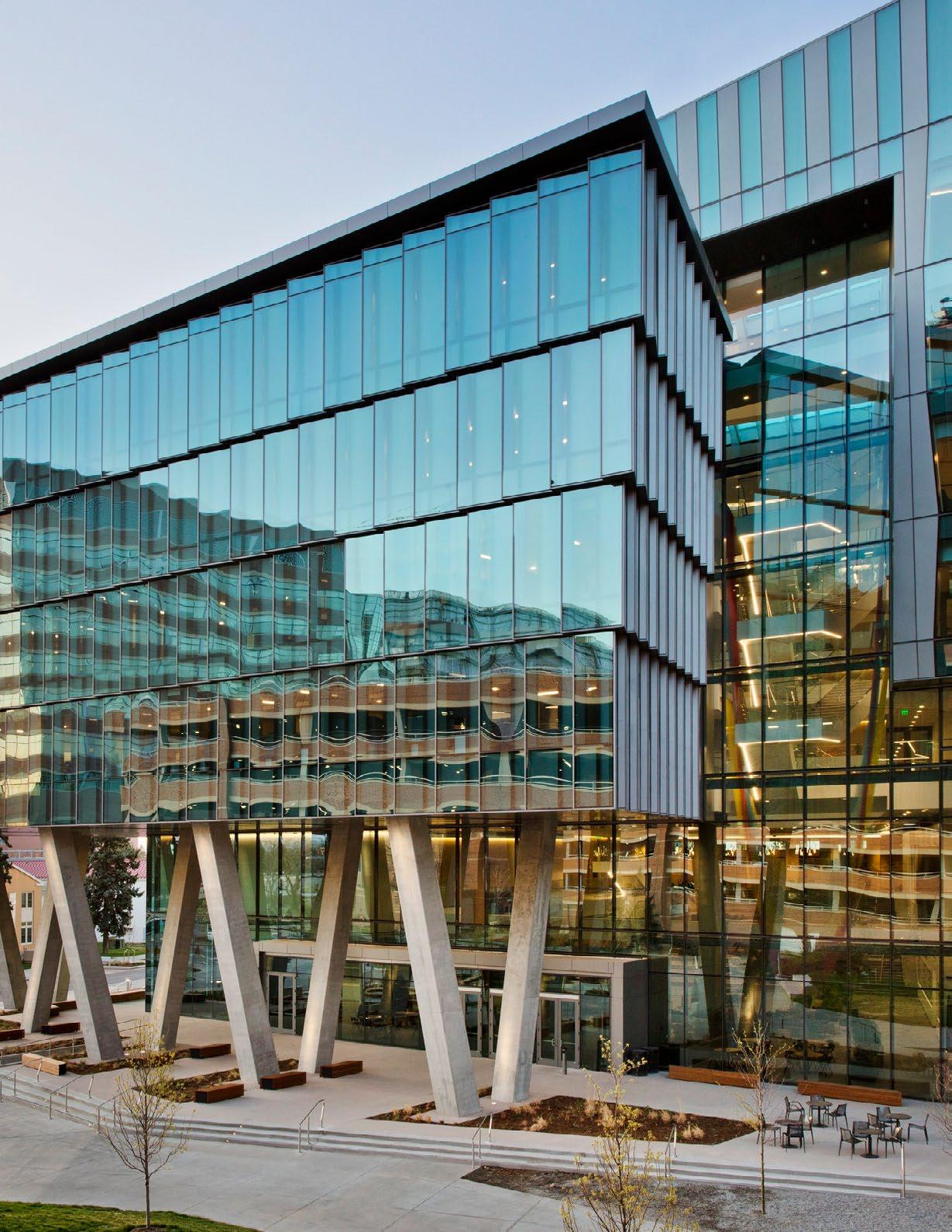
The Farley Health Policy Center is a team of interprofessional policy experts, clinicians, educators, and learners affiliated with the University of Colorado Anschutz Medical Campus. Our work focuses on health policy issues and systems reform to promote whole health for all.

CONTENTS Message from the Executive Director 5 About the Farley Health Policy Center 6 Research 11 Sustaining Healthcare Across Integrated Primary Care Efforts (SHAPE) 12 Medical Legal Partnership (MLP) 13 Medicaid Data Analysis 14 Translate 15 Protecting Youth from Gun Violence 16 The Economic Burden of Mental Health Inequities 17 Educate 18 Behavioral Health Provider Core Competencies 19 Re-imagining Leadership 20 Advocacy Training for Young Family Doctors in Primary Mental Health Care 21 Convene 22 Transforming Colorado’s Behavioral Health System 23 UPSTREAM! Together 24 Moving AHEAD 25 Implement 26 Make Health Whole 27 Mapping Opioid Use Disorder Treatment in Colorado 28 The Building Blocks of Behavioral Health Integration 29 Envisioning a Future of Whole Health for All 31 Partnerships 34 Partner With Us 37 3 FARLEY CENTER IMPACT REPORT

Our vision is whole health for all.
Message from the Executive Director
Hello, and welcome to the Farley Health Policy Center.
With this report, we reflect upon the impact of our work together and share a glimpse into what lies ahead. The Farley Center began with a vision built on the shoulders of a few, and is now a committed interprofessional team and multifaceted organization with all the benefits that come from diverse perspectives and expertise.

We believe that health is shaped by policies, structures, and systems that either strive for equitable health or perpetuate inequities. A more just health system requires thoughtful evidence-based policy development to address known inequalities and realize greater equity and social justice. Our scope of work has evolved from integrating behavioral health and primary care to pursuing integrated social, behavioral, and public health systems to improve community and family health and well-being.
Our vision for achieving whole health enables us to work with diverse partners and to engage individuals, as well as agencies, care providers, and policymakers. Policy is not developed unilaterally, nor can it be effective without shared vision and collective action.
In the following narratives, you will see the variety of policy-driven projects that have inspired us and the impact we are building based on our shared values and priorities. Within these stories, we hope you will discover community, family, prevention, wholeness, and equity.
Ultimately, we strive to improve child, family, and community health envisioning systems that promote whole health for all. It is with this purpose that we collaborate with partners, support our community, and pursue our mission: to develop and translate evidence to advance policies and integrate systems that improve health, equity, and well-being.
Be well,
Shale L. Wong, MD, MSPH (she, her) Executive Director, Eugene S. Farley, Jr. Health Policy Center University of Colorado Anschutz Medical Campus
5 FARLEY CENTER IMPACT REPORT
About the Farley Health Policy Center
We are a team of primary care and behavioral health providers, public health and policy professionals, scientists, educators, students, and fellows focused on health policy research, translation, and implementation.
MISSION
Develop and translate evidence to advance policies and integrate systems that improve health, equity, and well-being.
PURPOSE
Focus on local, state, and federal policies that promote more equitable health and combat fragmentation, systemic barriers, and structural racism.
AREAS OF EXPERTISE
System Transformation
Finance and Payment Policy
Workforce Development
Social Policy and Justice
Primary Care
Behavioral Health
Medicaid and State Policy
Child Health and Well-Being
Rural Health
Prevention
6 FARLEY CENTER IMPACT REPORT
135+ PUBLICATIONS
FOUNDED IN AWARDED GRANTS & CONTRACTS
$6.5M
TOTAL HEALTH PROFESSIONAL LEARNERS
32
40 POLICY & RESEARCH PROJECTS
21 funded by state and federal government and 19 by local and national foundations
ADVANCED POLICY AND PRACTICE
6 States
Colorado, Idaho, Virginia, Oregon, Kansas, and Massachusetts
OF POLICIES STUDIED & ANALYZED
Ì HB 22-1302 Health-care Practice Transformation: using BHI Framework to guide implementation; Farley scholar Dr. Stephanie Gold selected for advisory committee
Ì HB 21-1106 Safe Storage of Firearms: advocates used Protecting Colorado Youth from Gun Violence to develop this legislation
Ì Oregon SB 832 (2015): defines integrated behavioral health in primary care
2014
HUNDREDS
7 FARLEY CENTER IMPACT REPORT
Our History Timeline
2016
Contracts with the Oregon Health Authority to provide an organizing framework and recommendations to transform Oregon’s behavioral health system
2014
The Farley Health Policy Center is established by the CU Department of Family Medicine

2014 First policy fellow initiates education program
2016
Farley Center is designated an Anschutz Medical Campus center
2017
Convenes the Social Drivers of Health and Health Care Costs with the American Academy of Pediatrics
2017
Receives Exemplary Leadership in Innovation award from the CU Department of Family Medicine
2017
Shale Wong becomes director for the center, as founding director, Ben Miller, moves to the Wellbeing Trust
2015
Monthly health policy journal club begins
2015
Convenes National Leader Summit on Integrating Behavioral Health and Primary Care for the Robert Wood Johnson Foundation
2015
Convenes Colorado consensus conference to develop core competencies for behavioral health providers working in primary care

2018
UPSTREAM! Together project receives funding to prevent mental, emotional, and behavioral problems in three pioneer communities of solution
2018
Launches the Make Health Whole website to advance integrated behavioral health

2018
Convenes stakeholders to support Virginia Medicaid Mental Health Transformation
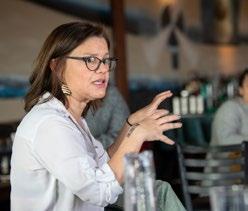
2014 2018 2016 2015 2017 8 FARLEY CENTER IMPACT REPORT
2022
Moves into the Anschutz Health Sciences Building
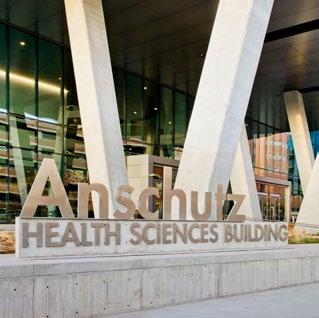
2019
Partners with Colorado Department of Health Care Policy and Financing to provide Medicaid analyses and reports
2019
Facilitates Governor Polis’ Behavioral Health Task Force subcommittees

2020
Publishes a COVID-19, case-based playbook for rural hospitals and rural primary care practices to help solve pandemic-related problems
2020
Colorado Access funds Colorado Tele-Legal Partnership to offer free legal services to patients in two primary care medical sites
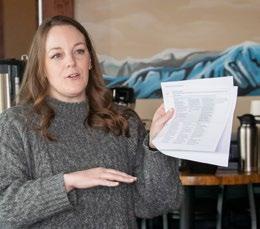

Launches Moving AHEAD: Advocating for Health Equity through Arts and Dance in partnership with Cleo Parker Robinson Dance
2022
Releases the Behavioral Health Integration Framework that provides flexible options for primary care clinics to integrate behavioral health
2020
Publishes health policy brief, Protecting Colorado Youth from Gun Violence

2022
Releases the Economic Burden of Mental Health Inequities report in partnership with the Satcher Health Leadership Institute and Robert Graham Center
2022
Leads an integrated behavioral health learning collaborative for rural health clinics in Kansas
2021
Starts presenting monthly legislative updates for CU AMC faculty, staff, and students
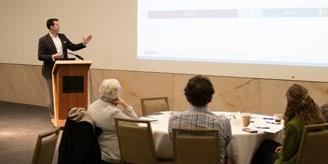
2020
Develops a curriculum for early career international physicians to lead practice transformation and advocacy with the World Organization of Family Doctors (WONCA)
2020
Releases the Behavioral Health Task Force blueprint , as well as several other reports, that outline Farley Center’s vision for statewide reform
2022
Trains newly elected state policymakers during Designing Health Policy for Coloradans workshop
2021
Becomes co-editors of the Families, Systems, and Health Policy and Management Department
2021
Publishes a national brief on policies to promote youth firearm safety
2020 2022 2019 2021 9 FARLEY CENTER IMPACT REPORT
Featured Projects
The Farley Center works across a variety of topic areas affecting health policy from the systems level, as in clinics and agencies, to the state and federal levels.
These projects span five activity categories:
Read on for a selection of our projects and their impact.

Convene
Research Translate Educate
Implement
RESEARCH
Policymakers and health care providers need to understand the influence of policies on health and disparities in care and health outcomes.
We develop evidence, fill knowledge gaps, and inform actionable policy steps toward integrating care, aligning payment systems, and growing the health care workforce to improve equitable access to and quality of care.
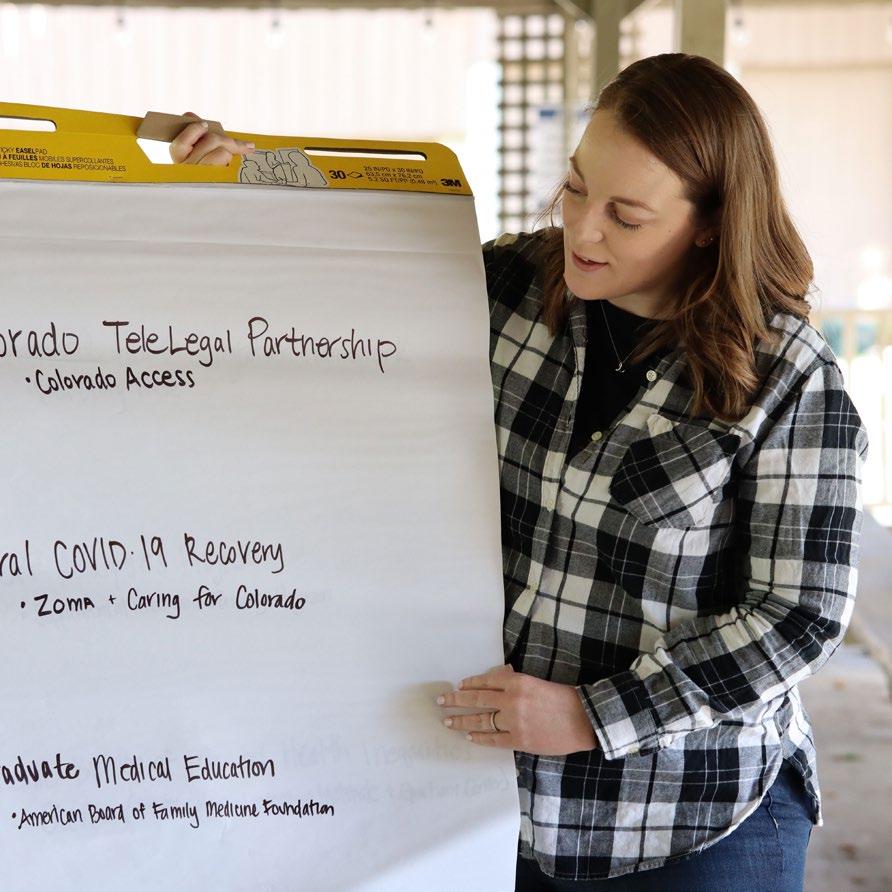
Sustaining Healthcare Across Integrated Primary Care Efforts (SHAPE)

Integrated health care addresses the whole health of patients and drives better health outcomes, but there is insufficient evidence on how to best pay for integrated behavioral health in primary care. The Farley Center partnered with the Collaborative Family Healthcare Association and Rocky Mountain Health Plans (RMHP), with funding from The Colorado Health Foundation, to support investment in integrated care. Three SHAPE practices in Western Colorado received payments to cover the costs of integration, calculated using an activitybased costing method rather than the more common fee-for-service model.
Patients at practices receiving the SHAPE payments were 3.5 times more likely to be screened for depression. RMHP provided payments totaling $900,000 to the SHAPE practices. Net savings to public payers (Medicaid and Medicare) totaled $1.08 million after 18 months. These project outcomes demonstrate that alternative payment models support behavioral health integration and can lead to cost savings for public payers.
Based on the project’s success, RMHP developed a formal tiering structure to direct alternative payments for behavioral health integration to advanced primary care practices. These findings provide evidence for how payers can support integrated behavioral health through alternative payment models to achieve better care and cost savings. Results like these are useful in the Farley Center’s continued efforts to promote payment reform as a critical tool for integrating behavioral health.
FROM 2012-2015
$1.08M 3.5x
Net savings to public payers after 18 months
More likely to screen patients for depression
12 FARLEY CENTER IMPACT REPORT
Medical Legal Partnership (MLP): Legal Intervention to Improve Patients’ Social Determinants of Health


Health care providers achieve better patient outcomes when they recognize and address social determinants of health (SDOH), which are non-medical factors such as one’s economic status that contribute to health outcomes. MLPs, when sustainably funded, have the potential to address SDOH to help overcome inequities in our health systems. The Farley Center has a long history of building the case that MLPs should be sustainably funded and made widely available, especially to low-resourced populations.
The Farley Center manages the Colorado Tele-Legal Partnership (CTLP), an MLP that started in 2020 through a Colorado Access Innovation Award. CTLP is uniquely designed to provide virtual legal services to qualifying patients at AF Williams Family Medicine Center and UC Health Internal Medicine-Lowry. The Farley Center also leads a coalition of health and legal professionals, the MLP Community Champions, which meets quarterly to advance MLP in Colorado.
Economic analyses provided by CTLP may inform large health systems and payers that could sustainably fund MLPs. The Colorado Department of Health Care Policy and Financing (HCPF) is currently considering the potential for alternative payment mechanisms for MLPs across the state. MLP Community Champions are working toward the selection of universal metrics to enable better data sharing and analysis. Better data collection and analysis would support the policy changes needed for sustainable funding for MLPs across Colorado.
The Farley Center continues to be a leader in developing research and evidence regarding MLPs. Future work will focus on CTLP and its potential growth, sharing of data with health systems and agencies to encourage wider funding and adoption of MLPs, and continued convening of the MLP Community Champions. Commitment to meeting families’ social and legal needs is the Farley Center’s driving motivation for engaging legal expertise to support health equity.
An autoimmune disorder left a 63-year-old male patient blind with kidney failure, heart disease, atrial fibrillation, and an abdominal aortic aneurism. He needed extensive medical care. Visually impaired, unable to drive, unable to work, and living alone, the patient was denied Medicaid coverage. He was also unable to pay for rent and unable to pay for transportation for medical care or dialysis.
The CTLP legal team advocated for the patient to have his Medicaid approved, secured rental assistance for his unpaid rent to avoid eviction, ensured visual disability was accommodated with clinical services, acquired medical transportation to dialysis and clinic visits, and acquired insurance coverage for long term care.
“This
JM FROM
JAN.
DEC.
is a huge burden taken off my shoulders…. CTLP did everything in their power to help me.” -
2021 THROUGH
2022
referrals made 254
Legal
13 FARLEY CENTER IMPACT REPORT
Medicaid Data Analysis
Heath First Colorado (Colorado’s Medicaid program) is the largest single health care insurer in the state. The program’s claims data can provide insights into health care delivery issues, from providing telemedicine to more effective models of care for youth in the child welfare system.
The Farley Center works with the Colorado Departments of Health Care Policy and Financing (HCPF) to answer complex questions and act as a technical support resource.

In one project, Farley Center researchers examined patterns of health care cost and utilization among Health First Colorado members who were concurrently enrolled in the state’s Supplemental Nutrition Assistance Program (SNAP). Findings suggested children 18 and younger who were concurrently enrolled in Health First Colorado and SNAP showed significant decreases in health care costs. Among adults, longer sustained participation in SNAP was associated with lower total cost of care, whereas adults with only recent SNAP participation experienced higher costs of care. Other projects have resulted in actionable guidance to support or adjust programs for Colorado Medicaid members.
As HCPF begins to develop the next phase of the Accountable Care Collaborative, its primary delivery model, the Farley Center’s work will provide a better understanding of both the needs of the foster care population and of a benefit designed to increase access to behavioral health. Such insights will help state agencies optimize care for children and families.
7 Published briefs to help state agencies optimize care for children and families
14 FARLEY CENTER IMPACT REPORT
TRANSLATE
By synthesizing data and evidence, we communicate, distill, and deliver accessible information to decision makers and health influencers to highlight policy actions and their potential impacts on and benefits for marginalized populations.

Protecting Youth from Gun Violence
Driven by mounting evidence of youth suffering from exposure to gun violence and school shootings, the Farley Center set out to understand gun violence statistics as well as describe available policies and laws available to decision makers to protect youth from firearm violence. The Farley Center team weighed in on this important issue by engaging learners to develop a brief to delineate first the Colorado firearm safety policy landscape and second the national landscape. A pediatric resident led early research efforts to create the state policy brief and, later, a pediatric emergency medicine fellow developed the second, nationallyfocused brief.
The briefs were disseminated with support from the American Academy of Pediatrics (AAP) and the Pediatric Policy Council. These partnerships created opportunities to discuss this issue at a community level with community leaders, at a state level at the Colorado AAP annual conference, and at a national level with a plenary panel of policy experts for the Pediatric Academic Societies national conference. Additionally, this work generated conversation among researchers to convene research, advocacy, and community to talk about these issues, including through community panel forums, national research presentations, and multiple initiatives to provide content expertise on policies, existing or potential.
This work also provided advocacy tools for local, state, and national organizations, resulting in Colorado gun legislation and federal testimony to support national legislation. The evidence shared with Colorado policymakers ultimately informed the gun storage legislation signed into law in April 2021.
13 Firearm safety laws passed in Colorado, 2019 – 2023
POLICY PATHWAYS
Methods decreasing the potency of mass shootings:
Ì Banning assault weapons
Ì Eliminating sales of bump stocks
Methods of decreasing suicide and homicide —risk to self or others:
Ì Background check*
Ì Safe storage laws and child access prevention*
Overall policy changes to understand and address firearm safety:
Ì Public health research on gun violence and policy efficacy*
Ì Extreme risk protection orders (sometimes called red flag laws)*
Ì Extended waiting periods*
*passed or expanded in Colorado law as of April 2023

16 FARLEY CENTER IMPACT REPORT
The Economic Burden of Mental Health Inequities


In September 2022, the Farley Center partnered with the Satcher Health Leadership Institute and the Robert Graham Center to release a first-of-its-kind investigation to examine the economic and health burden of mental health inequities in the United States.
Researchers conducted a comprehensive literature review, analysis of public data sets, and analysis of state and national policies to demonstrate the relationship between economic status, mental health status, and racial and ethnic status. During the five-year study period between 2016 and 2020, they found:
Ì At least 116,722 premature deaths due to mental and behavioral health-related racial inequities.
Ì Racial inequities generated at least $278 billion in excess cost burden.
Farley Center researchers provided specific policy proposals, using health equity principles to develop a comprehensive menu of policies that would address the existing mental health inequities. These included many proposals and related case studies across three categories:
Ì Sustainable and long-term investment in mental and behavioral health infrastructure.
Ì Adoption of culturally centered mental and behavioral health care.
Ì Addressing both the political and social determinants of health.
yielded significantly worse outcomes for racial and ethnic minoritized, marginalized, and under resourced populations.”
JD Senior Vice President & Executive Director Institute of Global Health Equity Meharry Medical College; Farley Center steering committee member
Daniel
After the report release, co-author Shale Wong presented select results to the tenth annual Colorado Clinical and Translational Sciences Institute academic summit, arguing the national data collection systems that health equity investigators rely on for their work are incomplete and hardwired for structural racism. The Farley Center is actively engaged in improving data equity and centering behavioral health policies in equity.
To learn more, read the article on Dr. Wong’s presentation from Anschutz Today or see the full report
“Investing in mental health care saves lives and dollars — we have known this for decades, but until now did not fully understand the monumental impacts of neglecting to act. For the first time, there is tangible evidence demonstrating how decades of systemic health inequities have
E. Dawes,
17 FARLEY CENTER IMPACT REPORT
EDUCATE
Based out of our academic home on the Anschutz Medical campus, we seek to develop the next generation of health professionals with a policy lens for approaching research and practice. Our interprofessional methods reach across the state and around the world to propel professionals to collaborate on positive change for health systems and local communities.


Behavioral Health Provider Core Competencies

The State of Colorado was awarded nearly $65 million from the Center for Medicare and Medicaid Innovation to implement a State Innovation Model focused on integrating behavioral health and primary care. The Farley Center recognized a need for behavioral health provider competencies to support primary care practices in their efforts to integrate. The team facilitated collaborative investments from five Colorado-based foundations to convene the Colorado Consensus Conference, which established a set of eight core competencies for licensed behavioral health providers working in primary care.
The report of competencies, descriptions, and practical examples was translated into live and animated videos for dissemination. The report was also converted into six training modules developed by the CU Department of Family Medicine and the Office of Behavioral Health (OBH) with consultation from Farley Center researchers. More than 275 Colorado behavioral health providers and trainees have been trained in these competencies.
The competencies have been used in job descriptions, hiring practices, and provider performance evaluations, in addition to being incorporated into graduate-level training programs. Other states have requested FHPC consultation to convene and adapt competencies for their specific state’s need. This is another example of tools the Farley Center continues to develop that promote behavioral health integration in clinical settings.
Alexander
Integrated Primary Care,
Professor Emeritus of Family Medicine and Community Health UMASS Chan Medical School
Colorado behavioral health providers have been trained in these competencies

275+
“Maybe you’re new to integrating behavioral health into primary care and want to develop the necessary expertise. Maybe you’re already delivering integrated primary care but want to deepen your abilities. Wherever you are in the process, it’s important to have the right skills for the right settings. The eight competencies can help.”
Blount, EdD President
19 FARLEY CENTER IMPACT REPORT
Inc.;
Re-imagining Leadership: A Pathway for Rural Health to Thrive in a COVID-19 World

In 2020, the COVID-19 pandemic shone a bright light on the widening fractures in the health care safety net across rural United States, but despite these challenges, individual leaders and systems rose to the occasion, rapidly designing and deploying creative solutions. To capture and share these innovations, the Farley Center and the Colorado Hospital Association have partnered to develop an evidence-based playbook to support rural hospitals and primary care practices as they navigate ongoing COVID-19 related challenges, including clinical care, communication, staffing, and supplies. This practical resource incorporates case-based learning and strategic thinking prompts, as well as findings from the literature and key informant interviews from more than 30 rural health care leaders and patients in Colorado.
To date, this work has led to the piloting of a rural health care delivery assessment tool by five primary care practices and nearly 10 rural hospitals in Colorado, as well as several virtual and in-person case-based leadership development trainings leveraging the playbook content. A total of three cases related to the playbook content have been written addressing burnout in a full-scope family physician, distribution of the COVID-19 vaccine in a rural community, and the basics of revenue cycle management in a rural hospital. These cases are being used to guide interdisciplinary teams through the challenges presented and ways to respond, building leadership capacity to identify and solve similar problems in the future.
This project made use of and built upon the Farley Center’s expertise in rural clinical practice and rural health policy. This expertise continues to inform the Farley Center’s work, including in a more recent project in partnership with rural health clinics in Kansas. Download the complete report.
20 FARLEY CENTER IMPACT REPORT
Advocacy Training for Young Family Doctors


in Primary Mental Health Care: A Global Call-to-Action
Mental, emotional, and behavioral problems spare no country or community. The Farley Center partnered with the World Organization of Family Doctors (WONCA) to develop and pilot a global curriculum to enable learners to lead practice transformation and be empowered with policyinfluencing skills to advocate for their patients and promote and enhance primary care mental health. The Farley Center and WONCA recruited 12 young family doctors, of whom seven were women and 10 were from low- and middle-income countries.
Despite initiation at the start of the COVID-19 pandemic, this pilot project was successfully implemented with remarkable participant commitment. The structure and operations of the program were confirmed to be feasible. The embedded evaluation provided both important insights for improvement and affirmation that the program was relevant, desired, and acceptable in different countries. The learners formed their own community. Several participants, already in positions of influence, recognized their ability to advocate for policy change. This project has demonstrated a widespread appetite and ability among young family doctors to integrate mental health and primary care. The intervention was successful in equipping them to spearhead systems changes to this end and would be reproducible in most countries.
The international team involved with the Farley Center is actively pursuing funding to expand this project and is launching the second cohort this summer.
Learn more
“The WONCA Advocacy Program on Primary Mental Health Care transformed my perception about mental health care in general practice and encouraged me to get firsthand experiences in that area by doing a project, which actually enhanced the quality of care in my practice. We not only published a few papers in reputed journals and presented our experience in professional fora, but also are getting invited now for primary care mental health academic activities as resources.”
Sankha Randenikumara, MD Family Physician and WONCA Young Doctors’ Lead Sri Lanka
21 FARLEY CENTER IMPACT REPORT
CONVENE
Bringing stakeholders and decision makers together to improve health and health care builds networks and relationships across silos and offers a forum for perspectives that represent different communities, sectors, or populations to be shared and understood.
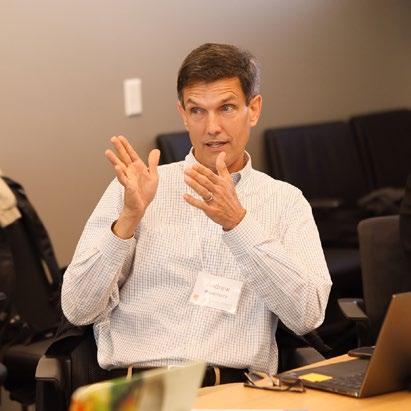
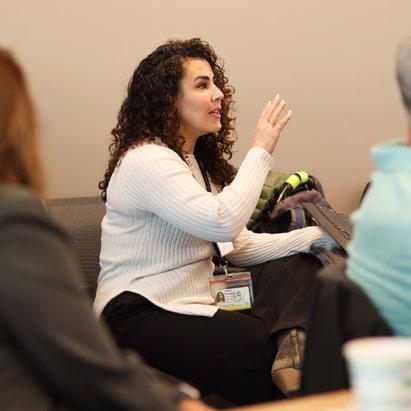
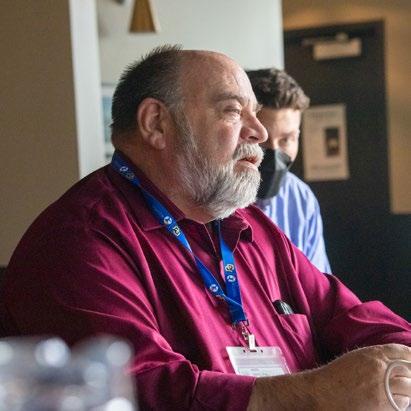
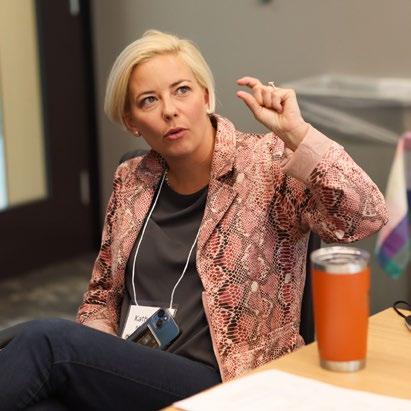
Transforming Colorado’s Behavioral Health System:
Behavioral Health Task Force
In 2019, Governor Polis established the Behavioral Health Task Force (BHTF)—comprised of stakeholders representing those who seek, deliver, administer, and pay for care—to develop a blueprint to transform the state’s behavioral health system. The Colorado Department of Human Services (CDHS) convened a main task force and three subcommittees: Children’s Behavioral Health, State Safety Net, and Long-Term Competency. The CDHS selected the Farley Center to facilitate these subcommittees, engaging stakeholders to draft recommendations informing ‘The Remedy for Behavioral Health Reform,’ which was delivered to the Governor in fall 2020.
“The Farley Center was a pivotal partner in Colorado’s Behavioral Health Task Force reform initiative. Their ability to stand up the organizational infrastructure of three large subcommittees with distinct needs to accomplish diverse objectives and maintain the workload over a two-year period was truly remarkable. They identified staff with the appropriate skill sets to facilitate, provide technical support, and administer a purposeful conversation among a statewide collection of stakeholders. We finished the work, including prioritizing the recommendations for solutions in light of the pandemic, and delivered a plan to reform Colorado’s behavioral health system.”
John Laukkanen
Children’s Behavioral Health Subcommittee Co-Chair, Colorado Behavioral Health Task Force
Behavioral Health Policy and Benefit Operations Unit Supervisor, Behavioral Health Initiatives and Coverage Office
Colorado Department of Health Care Policy and Financing
As a result of BHTF recommendations, Colorado passed Senate Bill 20-181. The bill ensured that individuals are not held in jail when competency is in question or when competency restoration is unlikely due to disability. Other policy advancements linked to this work include scaling of co-responder models, linking behavioral health providers with police to appropriately respond to crisis calls in communities, and the formation of Colorado’s Behavioral Health Administration (BHA). The BHA, a cabinet-member-led agency designed to be the single entity responsible for driving coordination and collaboration across state agencies to address behavioral health needs in Colorado, became operational on July 1, 2022, with the passage of Colorado House Bill 22-1278.
As the BHA begins to fulfill its work, the Farley Center will stand ready to partner in answering research questions, providing technical assistance, and convening stakeholders to guide the development of better behavioral health support in Colorado.

23 FARLEY CENTER IMPACT REPORT
UPSTREAM ! Together: Preventing Mental, Emotional, and Behavioral Health Problems in Youth
Mental, emotional, and behavioral (MEB) health problems are prevalent. While most of these problems have roots dating to childhood, some MEB problems can be prevented. Barriers to progress include fragmented payment structures and systems that neglect MEB problems, which community systems could help solve. The Farley Center partnered with three diverse Colorado communities to develop a plan to raise awareness and prevent MEB problems in children and their families. Researchers and community leaders used a community-based participatory research approach, Boot Camp Translation, to assess community demographics, assets, and challenges for a tailored solution.
All three communities decided to go “upstream” and focus on social connectedness with the recognition that the prevention of MEB problems begins early in life and lasts a lifetime. The Farley Center worked with community leaders to write and submit grant proposals to implement communities’ prevention ideas. Two communities successfully won funding. Combining community expertise with knowledge about preventing MEB problems can mitigate these issues while strengthening families and communities.
Equity and empowerment at the community level are core values of the Farley Center. UPSTREAM ! Together showcased the benefit of partnering with communities to amplify community voice and elevate local priorities.

24 FARLEY CENTER IMPACT REPORT
Moving AHEAD: Advocating for Health Equity through Arts and Dance
Artists use creative expression to speak truth to power and explain social problems. They can offer an authentic, cultural understanding of equity and community that helps shape and focus policies, and yet they are traditionally excluded from policy making discussions. The Farley Center, in partnership with Cleo Parker Robinson Dance (CPRD), is building an Arts Alliance for Health Equity in Colorado that brings artists to the table with community leaders to inform policy perspectives and advance health equity.
Moving AHEAD aims to build a multi-sector alliance of arts stakeholders to advocate for local and state policies that promise more equitable health outcomes. The work of the Arts Alliance includes and is informed by:

Advocacy: Building relationships and strengthening advocacy skills to expand knowledge about health policy and enhance continued progress and sustainability.
Policy Analysis: Identifying and prioritizing artsinformed health equity policy solutions.
Cultural Asset Mapping: Mapping community artistic and cultural assets across Colorado to identify bright spots and cultural deserts.
Convening: Discussing and enhancing shared understanding of equity through Arts Alliance convenings and engagement in community arts events that will inform policy changes.
MOVING AHEAD HAS:
Ì Convened participants across a variety of sectors in the Denver metro region, Trinidad, Durango, Mancos, and Colorado Springs.
Ì Focused on vaccine equity and access through CPRD’s series of vaccine clinics which contributed to public health awareness, a critical step toward influencing equitable policy making.
Ì Promoted voting in Colorado’s General Election through voting registration tables at CPRD’s Juneteenth event and Mile High Dance Festival.
The Farley Center’s commitment to elevating authentic community voices and empowering artists to engage in policy discussions informs their approach to developing more equitable policies and practices. To learn more, visit movingaheadco.org
“The Farley Health Policy Center has consistently helped to inform, educate, and exemplify the significance of policy and civic engagement within all areas of human development in Colorado’s most diverse communities. FHPC’s senior leadership and operational staff have been instrumental in the structuring and strategic planning of access and inclusion into the arts, mental health education, and rural community development.”
Malik Robinson Executive Director, Cleo Parker Robinson Dance
25 FARLEY CENTER IMPACT REPORT
IMPLEMENT
Our strategies advance integrated care across systems to reach historically marginalized communities for more equitable application of resources by providing guidance on how to put policies into action through implementation and regulation.


Make Health Whole
In 2018, the Farley Center created Make Health Whole, a campaign that translates evidence, tools, methods, and connections to assist engaged changemakers to integrate behavioral health and primary care. The Robert Wood Johnson Foundation, the Colorado Health Foundation, and the Zoma Foundation partnered with the Farley Center to enact this campaign.

As part of this project, the Farley Center helped three states improve integration:
IDAHO
As citizens of a frontier state, people living in rural Idaho communities experience both isolated bright spots and disconnected or absent resources. The resulting impact of adopting integrated behavioral health is combatting insufficient awareness and sharing of best practices. Idaho stakeholders needed to clarify and unify their state-level vision around expanding integrated behavioral health efforts. With support from the Farley Center, Idaho established a roadmap to guide integrated behavioral health efforts for their State Health Innovation Project.
OREGON
After years of experience advancing strategies to improve behavioral health service delivery, Oregon leaders wanted assistance in maintaining trust while coordinating and prioritizing policy agendas and developing structured recommendations for the state. Upon enlisting support from the Farley Center and applying the Integration Action Framework, the need for leadership assistance to advance the mission of the collaborative was identified. Following the delivery of the recommendations report, the Oregon Health Authority tasked existing work groups and committees with implementation.
VIRGINIA
Following multiple state tragedies, Virginia’s desire to improve behavioral health services was greater than ever. But despite deep government investments, the state could not achieve optimal results. Learnings found in collaboration with the Farley Center brought to focus the traditional and non-traditional venues wherein people with mental health concerns were seeking care and clarified next steps to align, define measures, and improve access. More fully equipped with better coordination across agencies, the Medicaid agency then shared these data and a vision to work with policymakers to meet behavioral health needs of the Commonwealth of Virginia.
To learn more, visit makehealthwhole.org
“I felt that I had a team behind me. Having [my care] all under one roof helped me recover faster. It’s been helping me build back up to who I was. If I didn’t have a behavioral health and primary care physician that worked together as a team, I couldn’t tell you where I’d be right now.”
Lance Cpl. James Vester U.S. Marine Corps, patient who experienced integrated care and story featured in the Make Health Whole campaign
27 FARLEY CENTER IMPACT REPORT
Mapping Opioid Use Disorder Treatment in Colorado
Nearly four Coloradans died every day from an opioid-related overdose in 2021. Compared to detoxification or counseling without medication, medication for opioid use disorder (MOUD) is more effective at keeping individuals with opioid use disorder (OUD) in treatment. The Farley Center and the Practice Innovation Program at the University of Colorado conducted a study to identify where there is insufficient buprenorphine treatment provision to meet the needs of Coloradans, calculate the workforce changes necessary to fill these treatment gaps, and offer recommendations to enable targeted resource allocation and better access to care for individuals with OUD.
The study resulted in several products designed for state policymakers, administrators, providers, and community stakeholders. The team has used maps to prioritize recruitment for other initiatives and programs that support practices that increase access to MOUD.
In addition, the Office of Behavioral Health in the Department of Human Services (now the Behavioral Health Administration) used the information to inform its focus in subsequent federal grants, and the Colorado Department of Public Health and Environment has adopted the metrics for its own statewide dashboard of prescribers.
104% 219%
Increase in patients receiving buprenorphine treatment*

Increase in buprenorphine prescribers*
*between 2017 and 2021
28 FARLEY CENTER IMPACT REPORT
The Building Blocks of Behavioral Health Integration

“Practices want to deliver this whole-person care, patients want to receive more of their care in one place, and payers want to support what will be better for patients and can lead to cost savings. Implementing the building blocks of behavioral health integration, tied to alternative payment models, will support this needed advancement in care.”
Stephanie Gold, MD Lead author of the report; Farley Center Scholar

With funding from Well Being Trust, the Farley Center and the CU Practice Innovation Program built upon practice milestones developed as part of the Colorado State Innovation Model to create a framework that is flexible and feasible for practices and payers alike. The Building Blocks of Behavioral Health Integration Framework establishes a standard minimum set of care delivery expectations for integrated behavioral health in primary care. Practices implement these foundational care delivery changes in addition to one or more components of behavioral health integration that fit their resources and patient population needs. Integrated behavioral health in primary care requires adequate investment through alternative payment models. For payers to invest more in integrated behavioral health, there needs to be a shared understanding of what changes in care will occur. The framework creates the opportunity for payers to operationalize integrated behavioral health, making what many already see as a good idea actionable and, eventually, more widely available to patients.
This framework is currently being piloted by the Farley Center in rural health clinics in Kansas to integrate behavioral health. Additionally, the Colorado Department of Health Care Policy and Financing (HCPF) is using the framework to guide implementation of HB 22-1302 Health-care Practice Transformation. This act creates the primary care and behavioral health statewide integration grant program in HCPF to provide grants to primary care clinics for implementation of evidence-based clinical integration care models.
Learn more
29 FARLEY CENTER IMPACT REPORT
The Farley Center’s Future, Team, & Partnerships
The Farley Center continues to pursue high impact projects to redesign decision makers’ approaches to improving health.
In the next sections, learn more about the Farley Center’s:

Ì Upcoming projects
Ì Partnerships
Ì Leadership team
Ì Opportunities to partner
Envisioning a Future of of Whole Health for All
The Farley Center continues to advance integration and health equity through all its policy endeavors to pursue solutions to complex and challenging questions like these:
HOW CAN HEALTH SYSTEMS MEASURE WHOLE HEALTH?
Working with national partners, the Farley Center is engaged in an effort to shape federal policy for the Centers for Medicare & Medicaid Services (CMS).
Vitality Signs is a new project to create a Comprehensive Patient-Reported Survey for Mental and Behavioral Health, funded by CMS, in collaboration with Virginia Commonwealth University and Case Western University. The team will develop a comprehensive health measure with focused attention on mental, behavioral, and social health needs among Medicare beneficiaries.
This project will ultimately result in a patient-reported survey representing health by the patterns of how people live, rather than the pathologies of how they die.
HOW CAN WE TRANSFORM COMMUNITY COLLABORATION AND HEALTH SYSTEMS?
The Farley Center is catalyzing new partnerships across the state to achieve a more holistic approach to integrating health systems.
The Collaborative Community Response (CCR) defines thriving in terms of shared outcomes and proposes an overall systems design and infrastructure transformation for delivering health and social services. This collaborative model, which strives toward whole person/whole family “success planning” and implementation delivered by local “common” organizations, brings together community members and leadership, primary care, behavioral health, public health, and social/human services. CCR proposes monetizing portions of the downstream savings and benefits of thriving from courts, child welfare, health, and other budgets to pay for services that promote thriving.
This approach could provide a paradigm-shifting mechanism for resourcing individual and community health services with unprecedented alignment of data, systems, and outcomes.
31 FARLEY CENTER IMPACT REPORT
HOW WILL EDUCATION ADVANCE EQUITABLE HEALTH?
Access to primary care providers is a dire need, especially in rural areas. Federal funding of graduate medical education (GME) has directed students to large urban academic centers, limiting service to rural communities and thus exacerbating health disparities.
The Farley Center is collaborating with the GME Initiative, a national coalition that includes leaders from the CU School of Medicine to reform GME funding and governance. Informed by a 2014 seminal report from the National Academy of Medicine, GME policies will shape the training of the next generation of primary care physicians.
The Farley Center is working to ensure that evidence-informed policies define training to develop a stronger, more equitable workforce that meets the needs of patients, regardless of where they live.

32 FARLEY CENTER IMPACT REPORT
Leadership Team
Shale
MD, MSPH Executive Director Professor of Pediatrics and Family Medicine
 R. Mark Gritz, PhD Director of Operations Professor, Internal Medicine
R. Mark Gritz, PhD Director of Operations Professor, Internal Medicine
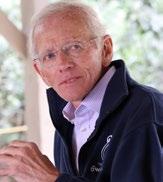

STEERING COMMITTEE
AFFILIATE FACULTY
MD, MPH, MSc, MHCDS, FAAFP State Policy Director Associate Professor, Family Medicine


 Lauren
Lauren
Our national steering committee is comprised of thought leaders from across both the campus and the country who provide guidance regarding overall direction and vision for the center’s activities. We’re proud to have representation from the health professional schools on campus, including several deans. The steering committee assists the center to define, develop, and achieve its goals, in addition to helping facilitate relationships with communities and relevant organizations and agencies.
Our cadre of partners continues to grow with interprofessional affiliate faculty representing multiple departments, specialties, schools/universities, associations, health systems, and non-governmental organizations. Shared commitment to specific policy projects and research, paired with our breadth and depth of expertise, expands our capacity and strengthens our reach.
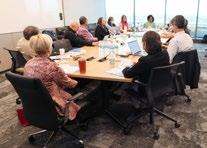 Wong,
Emma Gilchrist, MPH Deputy Director Senior Instructor, Family Medicine
S. Hughes,
Larry A. Green, MD Senior Advisor Distinguished Professor, Family Medicine
Wong,
Emma Gilchrist, MPH Deputy Director Senior Instructor, Family Medicine
S. Hughes,
Larry A. Green, MD Senior Advisor Distinguished Professor, Family Medicine
33 FARLEY CENTER IMPACT REPORT
Susan Mathieu, MPP Medicaid Policy Director Senior Instructor, Family Medicine
Partners: Funders, Collaborators, Sponsors, & Coalition Members CAMPUS COMMUNITY 17 10 20 9 36 27 10 FARLEY CENTER TEAM COLORADO NATIONAL & INTERNATIONAL ACCORDS CenterforHealth E qui t y C h i l d r sne’ psoHodaroloClati odaroloC loohcS fo tnemtrapeDhtlaeHcilbuP fo F a m i ly Medicine DepartmentofPediatrics Ponzio CreativeArtsTherapy/Childrens H o s pi t a l ykcoR muitrosnoCstrAniatnuoM namrehS & seciffOwaLdrawoH cayepeT Cinummo ty H e a l t h Center YouthDocumentaryAcademy Satcher HealthLeadershipInstitute Sunf l owe r F o u n d a t noi lleW gnieB tsurT noitazinagrOdlroW fo ylimaF )ACNOW(srotcoD dnuoFAMOZitano U n v e r s i ty o f MassachusettsMedicalSchool Westat Colorado Governor ’ sOff ice of S t a et PgnitegduBdnagninnal tutitsnIhtlaeHodaroloC e C o lorado HealthFoundation Firearm InjuryPreventi o n I n i t evitai ecitcarP noitavonnI margorP hcS loo o f Medicine Dean’sOffice Front RangeAreaHealth Educati o n retneC (snialPhgiH)CEHA hcraeseR dulaSkrowteN naS Liu s V a l e y Area HealthEducationCenter University ofNorthCarolina –Charlot t e V r g n ai peDecnatsissAlacideMfotnemtra ainigriV laroivaheBfotnemtrapeD dna D e v e l o p menta lServices Wandersman Group ColoradoHospital A s s o c noitai odaroloC lageL secivreS ffO i ec o f BehavioralHealth From the Heart GrupoFolklorico Sab or L at n o I n c htaK neel yeoGcM setaicossA& esuohthgiL W r sreti noitadnuoFLEIM hgiHeliM Mde i lac S o c i e t y M irror Image Arts Nourish One Good Turn Idaho DepartmentofHealth&WelfareLarryA Green Cent er M o r e h o u s e S c ooh l o f deMenici eraCyramirProfretneClanoitaNehT nogerO htlaeH ytirohtuA HrofretneChcraeseReraCyramirPlae i n g P oe lp e & C o m m u n i t ies Robert GrahamCenter RobertWoodJohnsonFoundation Colorado Access ColoradoDepartment o f E d tacunoi tnemtrapeDodaroloC fo htlaeH eraC gnicnaniFdnayciloP loCdaro o D e p a r tment o f Public HealthandEnvironment Colorado Public Radio CommunityOutreachService Cent er C o m m u n yt ooR det uCodnavitl muesuMtrArevneD mliFrevneD revneD muesuM fo ecneicSdnaerutaN loohcSrevneD fo Sicecne dna T e c h n o l o g y –DSST Public Schools EmancipationTheaterCompany LLC Agency for HealthCareResearchandQualityCenterforCommuni t y Heal t h n t e g r a t o n ( HC I ) retneC rof eraCyramirProfretneCeraCyramirPniecnellecxE retneC rof yramirP eraC ProfretneCnoitavonnIdnahcraeseRforisselano i ms dna Vla u e G r a d u a t e Medica l Education Initiative(GMEI)HealthInnovationsNetwork of Kansas interprofessional staff, including 9 MDs or PhDs affiliate faculty—local, national, and international national steering committee members 2040 Partners for Health BoysandGirlsCluboftheSanLui s Val l e y C l eo P a r k e r R o b nosni ecnaD EHAA nosniboRrekraPoelChtiwdetaicossasrebmem :sa raliugA cilbuP snoitaleR BgnidliuBpihsyllAtsicar-itnAsegdir iC t y dna Ctnuo y fo A u r o r a Co lo r a do Black Arts Movement ColoradoBusinessCommittee for the Arts 34 FARLEY CENTER IMPACT REPORT
Policy Partnerships That Serve the Campus
The Farley Center seeks to offer policy support to elevate the extraordinary work of faculty and staff across the Anschutz Medical Campus. Our services bring policy to the forefront, translate the research and clinical advances of our colleagues, strengthen our campus networks, and connect to decision and policy makers in our state. From developing policy briefs to training policy fellows, the Farley Center helps researchers make their findings actionable for policymakers, acting as a pillar for the campus to ensure policy is an integral component of health research and scholarly pursuits.
DISCOVERING THE POLICY IMPACT OF RESEARCH
The Farley Center provides policy services to help Anschutz Medical Campus researchers achieve even greater impact by reaching audiences beyond the traditional clinical scientific community, including policymakers, patients, and the broader public.
Our educational sessions and tools help research teams understand how to:
Ì generate policy-relevant research questions;
Ì conduct policy mapping;
Ì identify and reach relevant stakeholders and decision makers;
Ì translate data and evidence with messaging and visualization to increase accessibility for a wide variety of policy audiences;
Ì and develop strategic implementation and dissemination plans.
BRINGING POLICY-INTERESTED COLLEAGUES TOGETHER
Our Health Policy Journal Club (HPJC) meets monthly, convening interdisciplinary and interprofessional faculty, residents, and students; local health policy experts; and Farley Center faculty and staff. The topics discussed are wide-ranging, relevant, and timely, including issues such as CMS Innovation strategy and combatting health misinformation, child poverty, and structural racism. We invite participation.
To learn more about the journal club, review the What We’re Reading section of our website and register to attend.

“The Farley Center’s journal club convenes a monthly gathering of intergenerational, interprofessional attendees who dive into a compelling contemporary policy issue by discussing curated recent reports and publications with facilitation by Dr. Stephanie Gold. Its virtual format allows participation while on-call, on the road, or relaxing at home.”
Larry Green, MD Senior Advisor, Farley Health Policy Center Distinguished Professor, Department of Family Medicine
Epperson Zorn Chair for Innovation in Family Medicine and Primary Care

35 FARLEY CENTER IMPACT REPORT
CONNECTING THE CAMPUS AND THE CAPITOL
During Colorado’s legislative sessions, the Farley Center team provides training and educational programming to inform both legislators about health and health care practice and those on campus about relevant health policy activity at the legislature. Activities toward these goals have included:
Ì The Farley Center’s introduction of a health policy “boot camp” for bipartisan freshman legislators and those active in healthrelated committees ahead of the opening of the 2023 General Assembly. Our first informational session, “Designing Health Policy for Coloradans,” offered baseline health data on Colorado populations with focused demographics as well as explanations of health systems and insights on payment and structural barriers that impact equity in access to care. Special focus on behavioral health, disabilities, Medicaid, and child health enriched the discussion.
Ì Continued building and strengthening of new and existing relationships with policymakers at the state level in both the legislative and executive branches.
Ì Development of legislative tracking and summary documents as a campus-wide resource to support and augment the health policy contributions and connections to the Anschutz campus.

Ì Monitoring legislative activity and providing regular updates to interested campus participants. These monthly presentations offer education on procedure and movement of introduced bills that influence health policies and practices.
“The Farley Center’s presentations on the Colorado General Assembly bills brought home how important it is to be aware of what is happening in state policy. This educational opportunity for faculty, staff, and students is crucial to promote engagement on issues that affect patients’ lives. From a social justice standpoint, policy is where power inequities are cauterized.”
Sheryl Harrington Community Program Manager Department of Family Medicine

36 FARLEY CENTER IMPACT REPORT
Partner With Us
RESEARCHERS
We can help you design and conduct policy-relevant research and translate your expertise to inform policy change.
LEARNERS (STUDENTS/RESIDENTS/FELLOWS)
We offer opportunities to develop your policy and research skills and contribute to health policy projects.
STATE AGENCIES AND COMMUNITY PARTNERS
We lend skills and expertise to help you understand and address complex health issues.
VISIT OUR WEBSITE TO LEARN MORE
Ì Sign up to receive Friday’s Features, a weekly letter that curates recent information about health and health care policy issues.
Ì Attend our legislative tracking updates and health policy journal club.
Ì Submit an inquiry form to find out how we can support your interests, connect your work to policy, and advance your career or policy initiatives.
farleyhealthpolicycenter.org Follow us on Twitter: @FarleyHealthPol
37 FARLEY CENTER IMPACT REPORT
“I had the amazing opportunity to work at the Farley Center where I learned about the value of bridging the gap between members of underrepresented communities and the policymaking process.

I examined how health policies both directly and indirectly impact Colorado’s community health outcomes. I had the opportunity to work with rural health care research, analyze structural stigma in substance use disorder policies, and advance the Colorado Tele-Health Medical Legal Partnership program. My experience at the center and with the team was crucial in my decision to pursue my Juris Doctorate because I saw the important work that the Farley Center was doing and the work that still needs to be done. The Farley Center introduced me to the intersection of health and law, and I continue to have a
Seattle University School of Law

passion for health law as I pursue my law degree.”
Hallie Conyers-Tucker (she/her)
JD Candidate 2025
















































 R. Mark Gritz, PhD Director of Operations Professor, Internal Medicine
R. Mark Gritz, PhD Director of Operations Professor, Internal Medicine




 Lauren
Lauren
 Wong,
Emma Gilchrist, MPH Deputy Director Senior Instructor, Family Medicine
S. Hughes,
Larry A. Green, MD Senior Advisor Distinguished Professor, Family Medicine
Wong,
Emma Gilchrist, MPH Deputy Director Senior Instructor, Family Medicine
S. Hughes,
Larry A. Green, MD Senior Advisor Distinguished Professor, Family Medicine






